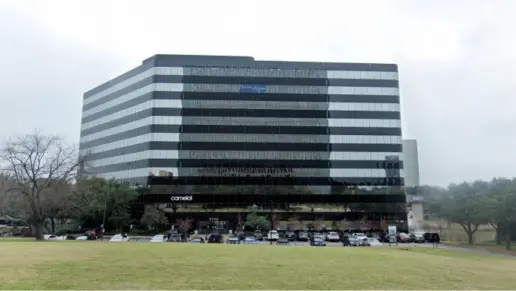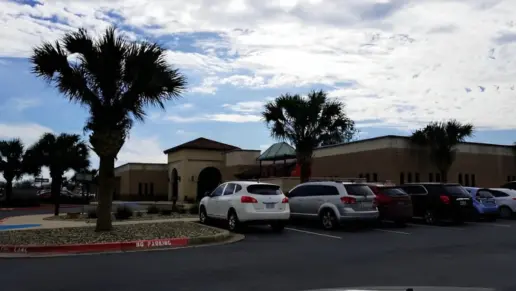About Integrated Psychotherapeutic
Integrated Psychotherapeutic is a premier outpatient substance use and mental health treatment and recovery facility in Dallas, Texas. They also address co-occurring disorders or dual diagnosis. This is when someone simultaneously struggles with substance misuse and mental health issues. The facility also helps those involved with the criminal justice system integrate into the community with ample resources via their judicially involved services.
They offer medication assisted treatment (MAT) for opioid and alcohol addiction. This technique uses FDA approved meds alongside counseling to support recovery. The facility primarily uses buprenorphine and naloxone for this purpose to minimize withdrawal symptoms and curb cravings. This allows you to be responsive to counseling or therapeutic interventions. Therapy groups help you address the underlying causes of your opioid use and build sound coping skills against such triggers. Emphasis is on preventing relapse and maintaining sobriety.
The cool thing about their medication assisted treatment program is that they offer online appointments and prescriptions which make it easy to attend while you’re working full time or in school. They can offer it as a standalone treatment or incorporate it into their outpatient recovery services. The facility provides intensive and supportive outpatient treatment geared toward establishing support mechanisms, relapse management and developing coping strategies.
These programs are based on SAMHSA’s clinically proven therapy models delivered in group and individual formats. They also include bilingual therapy groups and support telehealth appointments to optimize convenience. The intensive outpatient program (IOP) includes day and afternoon group sessions to accommodate different schedules. Participants meet three times weekly for two hour sessions and attend one four hour session each week and monthly individual sessions. You can finish the program and graduate to a supportive outpatient program if you complete your lessons and maintain sobriety. Although the program duration can vary based on unique needs.
The supportive outpatient program is focused on helping you maintain sobriety, improve health and strengthen your community support. This program also assists you in enhancing your career through case management services. It involves two phases that last about 13 weeks. You’ll attend two hour group sessions twice weekly for eight weeks in the first phase followed by weekly two hour sessions for five weeks in the second phase.
Aftercare programming is geared toward helping you maintain the recovery skills you gained from both programs. It involves one group meeting per month for three months. They may connect you to community resources that support your recovery efforts. These may include safe and supportive housing, medical care and educational opportunities.
 Payment Options
Payment Options
Self-pay options
Private insurance
Medicaid
Financial aid
Medicare
 Levels of Care
Levels of Care
 Outpatient
Outpatient
After completing some form of inpatient care, many clients transition or step down to an outpatient rehab, while some choose to transition from detox directly into outpatient care. High-intensity outpatient programming, including partial hospitalization (PHP) and intensive outpatient (IOP) is widely available for clients in early recovery, those leaving detox, and those at an elevated relapse risk. Clients in outpatient care generally engage in robust addiction counseling and recovery education, and some also receive medication assisted treatment (MAT).
 Medically Assisted Detox
Medically Assisted Detox
Ridding the body of harmful, addictive substances, also known as detoxification, is usually the first phase of recovery. Those going through medically assisted detox can be administered medications by a team of medical professionals who are on-site 24/7 to provide different types of therapies that help mitigate withdrawal symptoms.
 Intensive Outpatient
Intensive Outpatient
Intensive outpatient programs offer high-level care for clients as an increased risk of relapse, including those in early recovery, those with a strong history of relapse, and those experiencing a crisis. Intensive outpatient treatment typically requires clients to engage in nine to 20 hours of care weekly, with treatment modalities that combine psychotherapy and recovery education, and holistic therapies, such as acupuncture and animal therapy. Medication assisted treatment (MAT) is also common in alcohol and/or opioid recovery.
 Aftercare
Aftercare
Rehab aftercare programs are based on a model of continuing care and the premise that recovery is a life-long process requiring ongoing client support. Many rehab aftercare services include outpatient care, but clients often continue to receive support after being discharged from formal treatment. Case managers and care teams typically collaborate with clients to design their long-term care plan, which may include peer coaching, career counseling, and 12 step program induction, among other services.
 Programs
Programs
 Adult program
Adult program
 Program for men
Program for men
 Program for women
Program for women
 Treatment
Treatment
 Drug Addiction
Drug Addiction
During rehab in Texas, you'll deal with underlying issues that contribute to addiction. By addressing these challenges and learning healthy ways to cope with them, you'll develop strategies that help you live a drug-free lifestyle.
 Mental Health and Substance Abuse
Mental Health and Substance Abuse
In Texas, dual-diagnosis addiction treatment programs can treat individuals with co-occurring mental health and substance abuse challenges. Usually offered on an inpatient or outpatient rehab basis, clinicians provide individual and group therapy, medication-assisted treatment, cognitive behavioral therapy, or dialectical behavioral therapy, and skills training to address both disorders and equip you with the skills to maintain your recovery.
 Clinical Services
Clinical Services
 Individual therapy
Individual therapy
 Accreditations
Accreditations

SAMHSA
The Substance Abuse and Mental Health Services Administration (SAMHSA) is a branch of the U.S. Department of Health and Human Services. Established in 1992 by congress, SAMHSA's mission is to reduce the impact of substance abuse and mental illness on American's communities.
SAMHSA Listed: Yes


